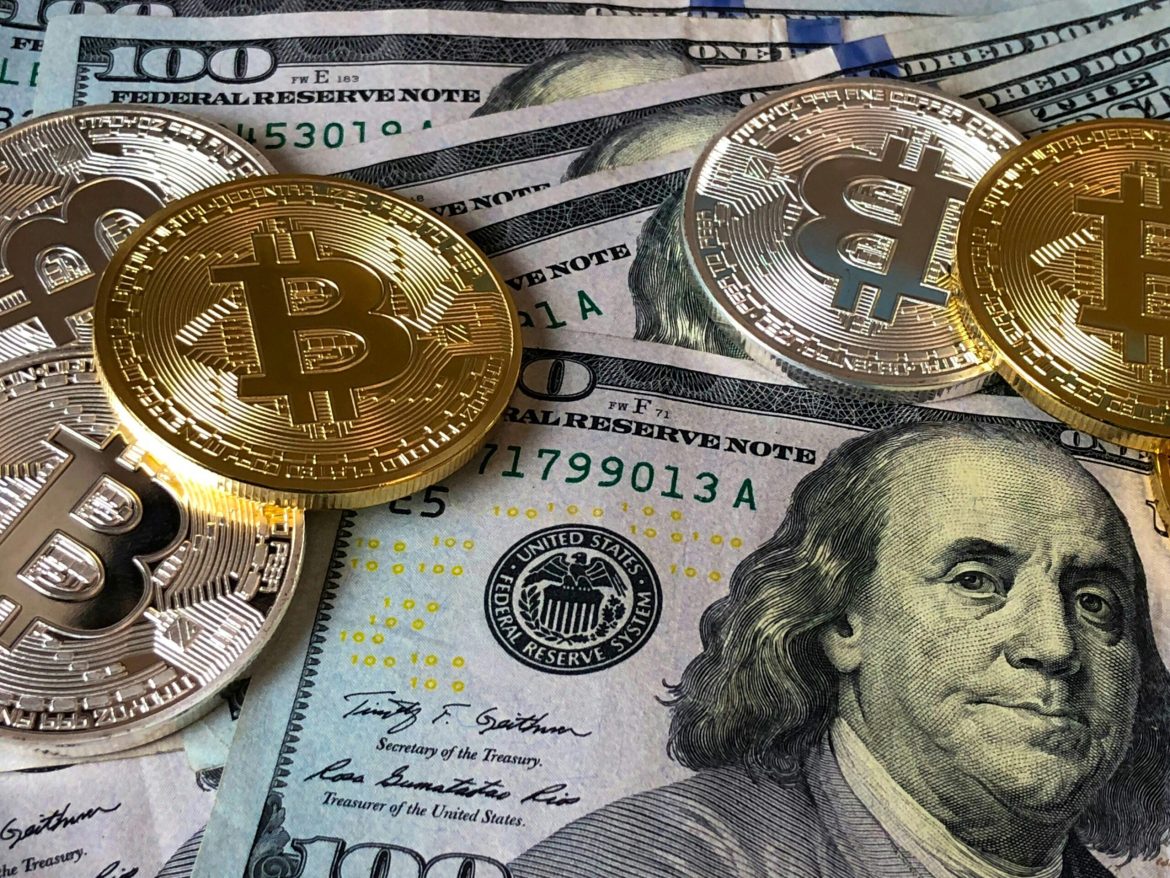It sounds like science fiction: a digital currency created by a pseudonymous coder helps rescue the world’s largest economy from a sovereign debt spiral.
But that’s exactly a conversation that is reaching Washington and Wall Street.
The idea is that Bitcoin could be the answer to the US debt problem.
And this idea isn’t coming from anonymous internet forums anymore. It’s coming from credible voices.
Former Strategy CEO Michael Saylor, asset manager VanEck, and even members of the US Senate are now entertaining the once-radical possibility that Bitcoin could serve as a financial lifeline.
Could Bitcoin be more than an investment hedge? Could this even become the base layer of a new global financial system?
A nation out of balance
The reality is that the United States is stretched thin. The federal debt has now exceeded $36 trillion and is projected to exceed $116 trillion by 2049, growing at around 5% annually.
Interest payments alone are expected to consume an increasingly large portion of the federal budget, especially as the country relies more heavily on short-term Treasury bills.
This vulnerability was exposed when post-pandemic inflation triggered a series of rate hikes.
Traditional policy tools are bound to become ineffective. Raising taxes or cutting spending are politically toxic.
Engineering inflation might reduce the real value of debt, but it punishes savers and is hard to control once unleashed.
A default is politically and financially unthinkable.
Institutions like the Brookings Institution still argue that a full-blown debt crisis remains unlikely.
But the reality is that scenarios once considered impossible are now more plausible.
The American fiscal trajectory is increasingly uncertain. This is why investors and policymakers are beginning to look elsewhere.
VanEck’s $21 trillion model
Asset manager VanEck recently brought new data to the table.
In a February 2025 report, the firm’s head of digital asset research, Matthew Sigel, calculated that if the US government accumulates one million Bitcoin by 2029, it could reduce national debt by $21 trillion by 2049.
That’s assuming a 25% compound annual growth rate (CAGR) in Bitcoin’s price, from $100,000 to a staggering $21 million per coin.
This hypothetical reserve would represent around 18% of US debt at that point.
The proposal aligns with the BITCOIN Act, proposed by Senator Cynthia Lummis, who supports a Bitcoin reserve strategy as a way to restore American fiscal health and reinforce the dollar’s dominance.
While such projections may seem extreme, they echo historical monetary resets, such as the collapse of the Roman denarius to the dissolution of Bretton Woods.
Every few generations, the monetary system changes. VanEck’s point is that Bitcoin could be part of the next one.
Bitcoin as digital capital
Michael Saylor has emerged as the loudest proponent of the idea that Bitcoin is more than just a decentralized asset.
During a recent interview with CoinDesk, Saylor outlined his vision: if the US acquires between 5% and 25% of Bitcoin’s total supply, it could create $16 to $81 trillion in long-term value by 2045.
In his words, it’s a financial lever strong enough to flip the national balance sheet from debtor to owner.
Bitcoin, he argues, isn’t competing with the dollar. It’s competing with capital assets such as real estate, equities, bonds, as the ultimate long-duration store of value.
Unlike gold or property, it’s borderless, liquid, and immune to dilution.
For institutions or sovereigns looking to preserve wealth over centuries, Bitcoin may be the only asset without an issuer, and therefore without political risk.
Saylor doesn’t just speak in abstractions. Strategy has raised billions through bonds and equity offerings to purchase more Bitcoin, transforming itself into a high-leverage proxy for the asset.
Saylor now describes Strategy not as a software company, but as a “publicly traded Bitcoin development firm.”
His broader proposal includes classifying Bitcoin as a digital commodity, separate from other crypto tokens that serve different purposes.
In this emerging taxonomy, Bitcoin is the cornerstone of capital preservation.
A new monetary foundation?
The US may be approaching a point of strategic necessity: the dollar-based fiat system is fraying at the edges, and a shift to a Bitcoin reserve could allow America to reboot from a position of strength rather than crisis.
The idea isn’t just domestic. Countries like Venezuela, Switzerland, and Hong Kong have begun exploring Bitcoin’s role in national reserves.
In Venezuela, it’s seen as a tool for wealth recovery. In Switzerland, as a complement to gold.
If the US Treasury were to begin accumulating Bitcoin, it would almost certainly trigger global copycat behaviour.
A sudden revaluation of Bitcoin could, in theory, reduce the real weight of US debt while boosting national net worth.
More radically, Bitcoin’s fixed supply would impose long-term fiscal discipline, curbing endless deficit spending and forcing governments to prioritize productivity over debt expansion.
Still, the transition would be anything but smooth. Hyperinflation of fiat currencies, social disruption, and the breakdown of existing debt markets are all conceivable outcomes.
A Bitcoin-based reset might cleanse the system, but not without casualties.
Is Bitcoin the answer?
The truth is, that Bitcoin is not a magic wand. It’s volatile, politically divisive, and poorly understood by many policymakers.
The bigger issue is that while public adoption grows, most policymakers still lack a clear understanding of it.
Moreover, Bitcoin is also not liquid enough yet to absorb large-scale sovereign adoption without major market distortion.
But it is credible.
It’s credible because it offers a clear alternative to the terminal drift of fiat. It’s credible because institutions like BlackRock are now backing it.
And it’s credible because the US is, for the first time, building a legal and strategic framework around it.
If the US embraces Bitcoin not as a speculative bet, but as a foundational reserve asset, it may yet reassert control over its financial future.
That future won’t look like the past. It will be decentralized, digitized, and volatile. But it might just work.
The post Is Bitcoin the answer to the US’s debt problem? appeared first on Invezz

